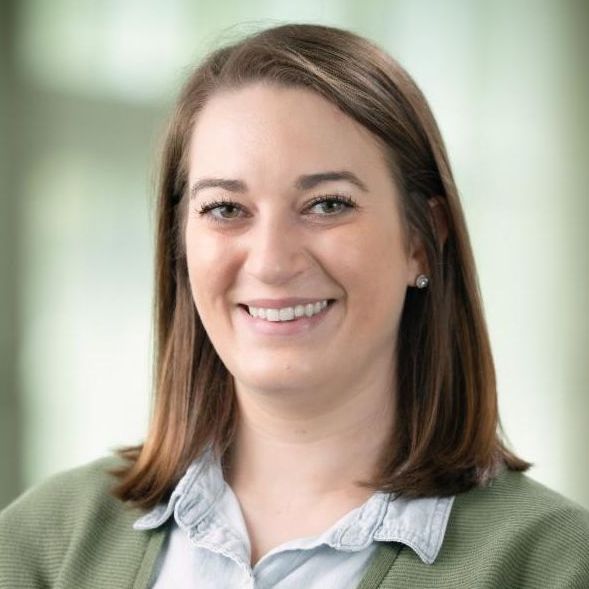Health care workers — including but not limited to physicians, nurse practitioners, physician assistants, nurses, behavioral health providers, and administrators — experience exceptional levels of burnout and compassion fatigue as the result of packed schedules, emotional demand, and moral injury — and these stressors have only been amplified since the outbreak of the COVID-19 pandemic. In this webinar, speakers will describe how stress affects us psychologically and biologically and share research-backed strategies for overcoming barriers to well-being. These strategies are rooted in the Adult Resilience Curriculum, or ARC, a 10-module model for implementing well-being at both the individual and organizational level. The model is rooted in adult positive psychology and organizational well-being theories and has been adapted to apply across medical and educational settings.
Learning Objectives:
Speaker(s):
 Brittany Liebsack, PhD, LP, is a faculty trainer for the Mid-America MHTTC's school mental health team, developing and providing training and technical assistance at the universal, targeted and intensive levels. Passionate about the dissemination and implementation of evidence-based practices for children and their families, Dr. Liebsack helps our Center implement comprehensive mental health programming via the most accessible mental health providers for youths and teens: our schools. Throughout her undergraduate and post-baccalaureate research and clinical experiences, Dr. Liebsack became aware of and frustrated by the research-to-practice gap in the use of evidence-based practices in community settings and routine care. This led to her pursuit of graduate training and research interests in implementation, dissemination, and patient/family engagement in and barriers to treatment. Dr. Liebsack’s clinical interests include school mental health, integrated primary care, trauma/anxiety, and externalizing behavior. She earned her Ph.D. in Psychology at West Virginia State and completed her pre-doctoral internship at the University of Nebraska Medical Center's Munroe-Meyer Institute, where she is now a postdoctoral fellow.
Brittany Liebsack, PhD, LP, is a faculty trainer for the Mid-America MHTTC's school mental health team, developing and providing training and technical assistance at the universal, targeted and intensive levels. Passionate about the dissemination and implementation of evidence-based practices for children and their families, Dr. Liebsack helps our Center implement comprehensive mental health programming via the most accessible mental health providers for youths and teens: our schools. Throughout her undergraduate and post-baccalaureate research and clinical experiences, Dr. Liebsack became aware of and frustrated by the research-to-practice gap in the use of evidence-based practices in community settings and routine care. This led to her pursuit of graduate training and research interests in implementation, dissemination, and patient/family engagement in and barriers to treatment. Dr. Liebsack’s clinical interests include school mental health, integrated primary care, trauma/anxiety, and externalizing behavior. She earned her Ph.D. in Psychology at West Virginia State and completed her pre-doctoral internship at the University of Nebraska Medical Center's Munroe-Meyer Institute, where she is now a postdoctoral fellow.
 Christian Klepper, PsyD, LP, is a licensed psychologist and assistant professor in the Department of Psychology at the Munroe-Meyer Institute for Genetics and Rehabilitation at the University of Nebraska Medical Center. She received her Psy.D. in clinical psychology from Mercer University in Atlanta, Georgia, and completed her internship and post-doctoral training at the Munroe-Meyer Institute. Dr. Klepper is the project coordinator for the Pediatric Mental Health Care Access Program and serves as a faculty trainer for the Mid-America MHTTC. Her clinical time is spent providing behavioral health services at Children’s Physicians, Creighton University Medical Center, in Omaha. Her research interests include integrating behavioral health into primary care, increasing access to care, anticipatory guidance and integrating behavioral health into well child visits, screening in primary care, psychological flexibility, and education and training in integrated primary care.
Christian Klepper, PsyD, LP, is a licensed psychologist and assistant professor in the Department of Psychology at the Munroe-Meyer Institute for Genetics and Rehabilitation at the University of Nebraska Medical Center. She received her Psy.D. in clinical psychology from Mercer University in Atlanta, Georgia, and completed her internship and post-doctoral training at the Munroe-Meyer Institute. Dr. Klepper is the project coordinator for the Pediatric Mental Health Care Access Program and serves as a faculty trainer for the Mid-America MHTTC. Her clinical time is spent providing behavioral health services at Children’s Physicians, Creighton University Medical Center, in Omaha. Her research interests include integrating behavioral health into primary care, increasing access to care, anticipatory guidance and integrating behavioral health into well child visits, screening in primary care, psychological flexibility, and education and training in integrated primary care.
Coming Home to Primary Care: Pediatric Integrated Health